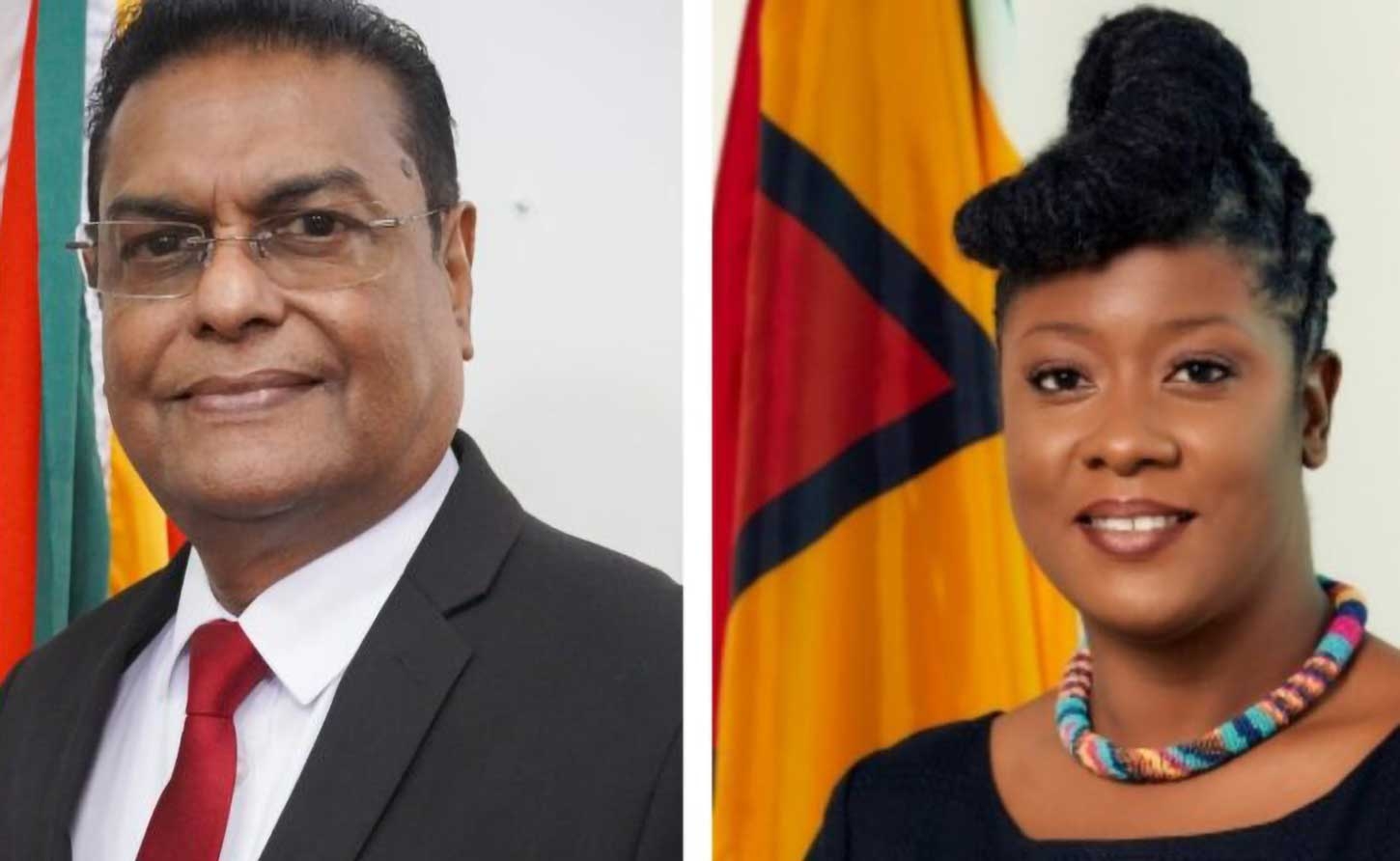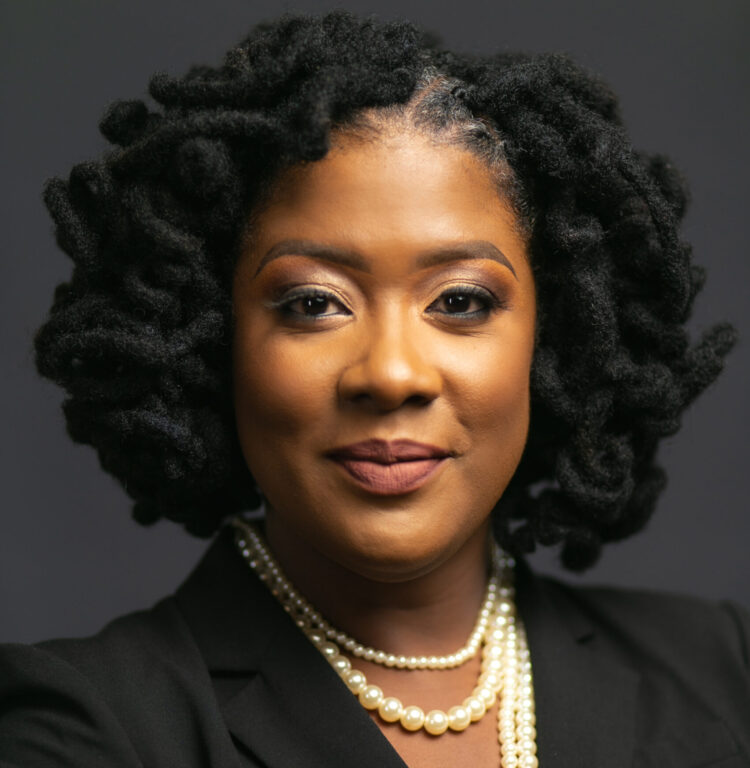GUYANA | Speaker bans ‘Corruption’ in Parliament Sparks Constitutional Crisis

GEORGETOWN, Guyana, January 15, 2025 - In an unprecedented move that has thrown Guyana's National Assembly into a linguistic twilight zone, Speaker Manzoor Nadir's ban on the word "corruption" has created what critics are calling a "Kafkaesque nightmare" in the halls of democracy.
The edict, which prohibits the use of the term during parliamentary debates, has sparked a fierce constitutional debate and prompted a scathing open letter from Opposition Member of Parliament Amanza Walton-Desir.
The absurdity of the situation reached new heights last month when the government hosted an anti-corruption expo – an event that, ironically, cannot be properly referenced within the confines of the 65-seat legislature without violating the Speaker's ban.
"How does one discuss combating corruption without being able to say the word?" Walton-Desir demanded in her letter, highlighting the practical impossibility of the situation.
In her forceful appeal to Speaker Nadir, Walton-Desir painted a picture of parliamentarians reduced to linguistic contortionists, forced to invent elaborate euphemisms to discuss one of the nation's most pressing issues.
"Should we as MPs refer to the expo as the 'anti-C event'?" she wrote, her words dripping with barely concealed derision. "Or perhaps invent euphemisms, like 'the battle against dishonesty that shall not be named'?"
The ban has created a particularly awkward situation for Minister Gail Teixeira, under whose ministerial purview the anti-corruption expo was organized.
According to Walton Desir's letter, the minister would be unable to discuss her own department's flagship event without running afoul of the Speaker's edict – a contradiction that underscores the policy's fundamental flaws.
Beyond the immediate procedural complications, Walton Desir's letter strikes at the heart of parliamentary purpose, arguing that the ban undermines the very foundation of democratic discourse.
"The role of Parliament is to serve as a forum for truth, accountability, and robust debate," she asserts, suggesting that linguistic censorship of this nature creates a dangerous precedent for future restrictions on parliamentary speech.
The situation has exposed a deeper paradox within Guyana's governance structure: while the government actively promotes anti-corruption initiatives in public forums, its highest legislative body remains linguistically handcuffed from addressing the very same issues.
This disconnect, critics argue, raises troubling questions about transparency and democratic accountability in one of South America's emerging economic powers.
"This is not merely a matter of semantics," Walton-Desir emphasized in her letter, her words echoing the frustration of opposition members and civil society activists alike. "If we are serious about addressing corruption in all its forms, we cannot shy away from naming it. Banning the word does not make the problem disappear."
The controversy has attracted attention beyond Guyana's borders, with international governance experts viewing the ban as a concerning development in a region already grappling with challenges to democratic institutions.
Some observers have drawn parallels to George Orwell's concept of "Newspeak," where limiting language becomes a tool for controlling thought and debate.
As pressure mounts for a reversal of the ban, Walton-Desir's closing plea to the Speaker resonates with particular urgency: "Let us restore to the National Assembly the freedom to engage in meaningful discourse, to name the issues we face, and to work together to resolve them. The citizens of Guyana deserve no less."
The ball now rests in Speaker Nadir's court, as the nation watches to see whether this linguistic limitation will stand or fall. What's clear is that in trying to silence discussion of corruption, the ban has instead amplified the conversation around it, creating exactly the kind of attention the restriction may have sought to avoid.
To the Speaker of the National Assembly.
Mr. Speaker, I write to you with respect to the office you hold and the vital role you play in guiding our parliamentary proceedings. I feel it is my duty to raise an issue that has been a source of continuous controversy and which is now, frankly, absurd: the prohibition of the use of the word "corruption" in parliamentary speech.
 This ban, instituted by you some time ago, has always been a subject of concern for those of us who believe in free and open debate. A number of developments have brought its absurdity into sharp focus.
This ban, instituted by you some time ago, has always been a subject of concern for those of us who believe in free and open debate. A number of developments have brought its absurdity into sharp focus.
One such example is that the Government of Guyana made much ado about an anti-corruption expo it hosted last month—a commendable effort in principle.
Yet, under the current parliamentary edict, I and for that matter, Minister Gail Teixeira under whose ministerial auspices the expo was convened, would not be able to properly reference this event in the National Assembly because its very title includes the forbidden word.
Mr. Speaker, this situation borders on the comical. How does one discuss combating corruption without being able to say the word? Should we as MP’s refer to the expo as the "anti- ‘C’ event"? Or perhaps invent euphemisms, like "the battle against dishonesty that shall not be named"? Such linguistic gymnastics is unbecoming of a serious parliamentary discourse and makes us, quite frankly, the subject of further ridicule.
The role of Parliament is to serve as a forum for truth, accountability, and robust debate. To ban words central to these functions—particularly one as pivotal as "corruption"—undermines the dignity and purpose of this august body.
It also sends a troubling signal to our citizens: that while the government may host expos and deliver speeches on a so-called battle against corruption, Parliament itself cannot openly discuss the issue.
This is not merely a matter of semantics; it is a matter of principle. If we are serious about addressing corruption in all its forms, we cannot shy away from naming it. Banning the word does not make the problem go away. Instead, it creates the illusion that we are more concerned with appearances than action.
Mr. Speaker, I urge you to reconsider this decision. Let us restore to the National Assembly the freedom to engage in meaningful discourse, to name the issues we face, and to work together to resolve them. The citizens of Guyana deserve no less.
Respectfully,
Hon. Amanza Walton-Desir
Member of Parliament
-30-
